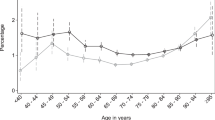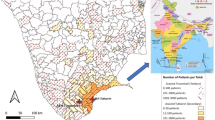Abstract
Objectives
Cataract surgeons may periodically take time away from operating which can lead to skills fade. There is a paucity of research investigating the experiences of returning cataract surgeons and how different individual circumstances impact on their return. Our aim was to investigate the subjective experiences of UK ophthalmologists simultaneously returning to surgery following the nationwide elective surgical hiatus due to the Covid-19 pandemic.
Methods
An online survey was nationally distributed between 01/09/2020 and 29/10/2020 to registered UK ophthalmologists. Participants indicating a surgical hiatus of 8 weeks or more were included.
Results
232 of 264 responses were analysed. Covid-19 was the most frequent reason for a surgical hiatus (median 15 weeks). Perceived operating difficulties were found in 29.1%. Transient anxiety (51.7%), reduced confidence, and perceived increased surgical time were commonplace. Trainees and females were more likely to encounter negative experiences (p < 0.001) and barriers to resource accessibility. Eyesi® and online videos were the most available and accessed pre-return resources. Childcare was five times more likely to present as a barrier to resource access for females than males.
Conclusions
Technical skills fade such as capsulorhexis difficulties were commonly perceived by trainee surgeons in addition to transient anxiety, reported in more than half of all surgeons following a hiatus as short as 8 weeks.
Eyesi® simulation offers the potential to negate technical de-skilling. Few had formal return plans or awareness of RCOphth guidance. We believe there is scope for more specialised and targeted support for future returning cataract surgeons thereby optimising patient care.
Similar content being viewed by others
Log in or create a free account to read this content
Gain free access to this article, as well as selected content from this journal and more on nature.com
or
References
Royal College of Ophthalmologists. National Ophthalmology Database Audit, key findings summary. 2019. https://www.nodaudit.org.uk/u/docs/20/ctshjnsvvi/NOD%20Audit%20Key%20Findings%20Summary%202020.pdf.
Day AC, Donachie PHJ, Sparrow JM, Johnston RL. The royal college of 285 ophthalmologists’ national ophthalmology database study of cataract surgery: report 1, visual outcomes and complications. Eye. 2015;4:552–60.
Pager CK. Expectations and outcomes in cataract surgery: a prospective test of 2 models of satisfaction. Arch Ophthalmol. 2004;122:1788–92.
Spinelli A, Pellino G. COVID-19 pandemic: perspectives on an unfolding crisis. Br J Surg. 2020;107:785–7.
World Health Organisation. Clinical management of severe acute respiratory infection when novel coronavirus (nCoV) infection is suspected: interim guidance, 25 January 2020. World Health Organization. 2020. https://apps.who.int/iris/handle/10665/330893.
NHS England and NHS Improvement. Letter to chief executives of all NHS trusts, CCG accountable officers, GP practices and primary care networks, and providers of community health services NHS England and foundation trusts. 2020. https://www.england.nhs.uk/coronavirus/wpcontent/uploads/sites/52/2020/03/urgent-next-steps-on-nhs-response-to-covid-19-letter-simon-stevens.pdf.
British Medical Journal. Covid-19: all non-urgent elective surgery is suspended for at least three months in England. BMJ. 2020;368:m1106.
General Medical Council. Skills fade: a review of the evidence that clinical and professional skills fade during time out of practice, and of how skills fade may be measured or remediated. London: GMC; 2014. https://www.gmc-uk.org/-/media/gmc-site-images/about/skills-fade-literature-review-full-report.pdf?la=en&hash=8E0E20E07337E2344A5467F9B302C2D83CF2EBA5.
Ahya SN, Barsuk JH, Cohen ER, Tuazon J, McGaghie WC, Wayne DB. Clinical performance and skill retention after simulation-based education for nephrology fellows. Semin Dialysis. 2012;25:470–73.
Gold, M, Jensen, P, Jedrzkiewicz, M. Motherhood during residency training challenges and strategies. Can Fam Physician. 2005:51:990−1.
Hiemstra E, Kolkman W, van de Put MA, Jansen FW. Retention of basic laparoscopic skills after a structured training program. Gynecol Surg. 2009;6:229–35.
Maagaard M, Sorensen JL, Oestergaard J, Dalsgaard T, Grantcharov TP, Ottesen BS, et al. Retention of laparoscopic procedural skills acquired on a virtual-reality surgical trainer. Surg Endosc. 2011;25:722–7.
Nash EJ, Curry J, Blackburn S. Returning to theatre after an interval. Bull R Coll Surg Engl. 2018;100:277–81.
Brightwell A, Minson S, Ward A, Fertleman C. Returning to clinical training after maternity leave. BMJ. 2013;347:f5965.
Ho DK, Chiu AKC, Tung SW. Restarting cataract surgery after an extended period out of training: a perspective from the United Kingdom. Eye. 2020. https://doi.org/10.1038/s41433-020-01224-z.
Royal College of Ophthalmologists. Mitigating the impact of COVID-19 on ophthalmology training. 2020. https://www.rcophth.ac.uk/wp-content/uploads/2020/11/Mitigating-the-effects-of-COVID-19-on-ophthalmologists-in-training-November-2020.pdf.
Royal College of Anaesthetists. Returning to work after a period of absence. London: RcoA; 2015. https://www.rcoa.ac.uk/system/files/ReturnToWork2015.pdf.
Health Education England, NHS. Supported return to training. 2017. https://www.hee.nhs.uk/sites/default/files/documents/Supported%20Return%20to%20Training.pdf.
Academy of Medical Royal Colleges. Return to practice guidance: 2017 revision. London: AoMRC; 2017. https://www.aomrc.org.uk/wp-content/uploads/2017/06/Return_to_Practice_guidance_2017_Revison_0617-2.pdf.
British medical Association. Returning to clinical practice after absence. 2020. https://www.bma.org.uk/advice-and-support/career-progression/applying-for-a-job/returning-to-clinical-practice-after-absence.
Cahillane, MA & Morin, C. Skills retention in a complex battlefield management system: a pilot study. Yarralumla, Australia: Argos Press Pty Ltd; 2012.
European Union Aviation Safety Agency. Guidelines for handling exemptions to flight crew recent experience requirements in the field of commercial air transport operations. 2020. https://www.easa.europa.eu/sites/default/files/dfu/easa_guidelines-exemption_fc_recency_oro.fc_.100-fcl.060_issue_3_09.07.20.pdf.
International Air Transport Association. Guidance for managing pilot training and licensing during COVID-19 operations. 2020. https://www.iata.org/contentassets/c0f61fc821dc4f62bb6441d7abedb076/iata-guidance-for-managing-pilot-training-licensing-during-covid19.pdf.
National Health Service. Health Research Authority decision tool, UK. 2020. http://www.hra-decisiontools.org.uk/ethics/.
The Royal College of Ophthalmologists. Workforce Census 2018. 2019. https://www.rcophth.ac.uk/wp-content/uploads/2019/02/RCOphth-Workforce-Census-2018.pdf.
SurveyMonkey Inc. San Mateo, California, USA. 2021. https://www.surveymonkey.co.uk/mp/margin-of-error-calculator/.
Dean WH, Grant S, McHugh J, Bowes O, Spencer F. Ophthalmology specialist trainee survey in the United Kingdom. Eye. 2019;33:917–24.
Abdelfattah NS, Radwan AE, Sadda SR. Perspective of ophthalmology residents in the United States about residency programs and competency in relation to the International Council of Ophthalmology guidelines. J Curr Ophthalmol. 2016;28:146–51.
The Royal College of Ophthalmologists. Award of the Certificate of Completion of Training (CCT), Surgical Skills SS4. 2021. https://www.rcophth.ac.uk/learningoutcomes/ss4/.
Ericsson KA. Chapter 38 The influence of experience and deliberate practice on the development of superior expert performance. In: The Cambridge handbook of expertise and expert performance. Florida, USA: Florida State University; 2006. p. 685–705.
Broadwell, M. Teaching for learning (XV1.) Vol 20, no 1-3a. 1969. https://edbatista.typepad.com/files/teaching-for-learning-martin-broadwell-1969-conscious-competence-model.pdf.
Dooley IJ, O’Brien PD. Subjective difficulty of each stage of phacoemulsification cataract surgery performed by basic surgical trainees. J Cataract Refract Surg. 2006;32:604–8.
Grinton M, Sandhu J, Shwe-Tin A, Steel DHW, Ting DSJ, North East Trainee Research in Ophthalmology Network (NETRiON). Incidence, characteristics, outcomes and confidence in managing posterior capsular rupture during cataract surgery in the UK: an ophthalmology trainees’ perspective. Eye. 2020. https://doi.org/10.1038/s41433-020-1057-z.
Turnbull AM, Lash SC. Confidence of ophthalmology specialist trainees in the management of posterior capsule rupture and vitreous loss. Eye. 2016;30:943−94.
Ti S-E, Yang Y-N, Lang SS, Chee SP. A 5-year audit of cataract surgery outcomes after posterior capsule rupture and risk factors affecting visual acuity. Am J Ophthalmol. 2014;157:180–5.
Lee R, Raison N, Lau WY, Aydin A, Dasgupta P, Ahmed K. A systematic review of simulation-based training tools for technical and non-technical skills in ophthalmology. Eye. 2020;34:1737–59. https://doi.org/10.1038/s41433-020-0832-1.
Ferris JD, Donachie PH, Johnston RL, Barnes B, Martina O, Sparrow M. Royal College of Ophthalmologists’ National Ophthalmology Database study of cataract surgery: report 6. The impact of EyeSi virtual reality training on complications rates of cataract surgery performed by first and second year trainees. Br J Ophthalmol. 2019;104:324–9.
Royal College of Ophthalmologists. Remotely supervised simulated surgery. 2021. https://www.rcophth.ac.uk/event/remotely-supervised-simulated-surgery-webinar/.
Maubon L, Nderitu P, Swampillai AJ. National access to Eyesi® and anterior vitrectomy simulation. Eye. 2020. https://doi.org/10.1038/s41433-020-1107-6.
Author information
Authors and Affiliations
Contributions
LM, PN and DO’B developed the project concept. LM and PN designed the survey questions and online forms. LM and PN helped distribute the survey via the RCOphth mails-lists. PN performed the primary data analysis. LM, PN and D’OB were involved in the interpretation of the results. LM and PN drafted the paper, which was reviewed and revised by all authors. LM and PN are accountable for the data integrity. All authors approved the final paper.
Corresponding author
Ethics declarations
Competing interests
DO’B holds non-commercial research grants with Rayner Ltd., Alcon Inc., and Avedro Inc. He is a consultant to Zeiss and Sparca Inc.
Additional information
Publisher’s note Springer Nature remains neutral with regard to jurisdictional claims in published maps and institutional affiliations.
Supplementary information
Rights and permissions
About this article
Cite this article
Maubon, L., Nderitu, P. & O’Brart, D.P.S. Returning to cataract surgery after a hiatus: a UK survey report. Eye 36, 1761–1766 (2022). https://doi.org/10.1038/s41433-021-01717-5
Received:
Revised:
Accepted:
Published:
Version of record:
Issue date:
DOI: https://doi.org/10.1038/s41433-021-01717-5
This article is cited by
-
The future of cataract surgery
Eye (2025)
-
The endemic avoidable harm of cannula dislodgement
Eye (2025)
-
Virtual reality simulation and real-life training programs for cataract surgery: a scoping review of the literature
BMC Medical Education (2024)
-
Evidence for recency of practice standards for regulated health practitioners in Australia: a systematic review
Human Resources for Health (2023)
-
Complications during elective cataract surgery: did the COVID-19 lockdown affect outcomes of ophthalmic surgery?
BMC Ophthalmology (2023)



